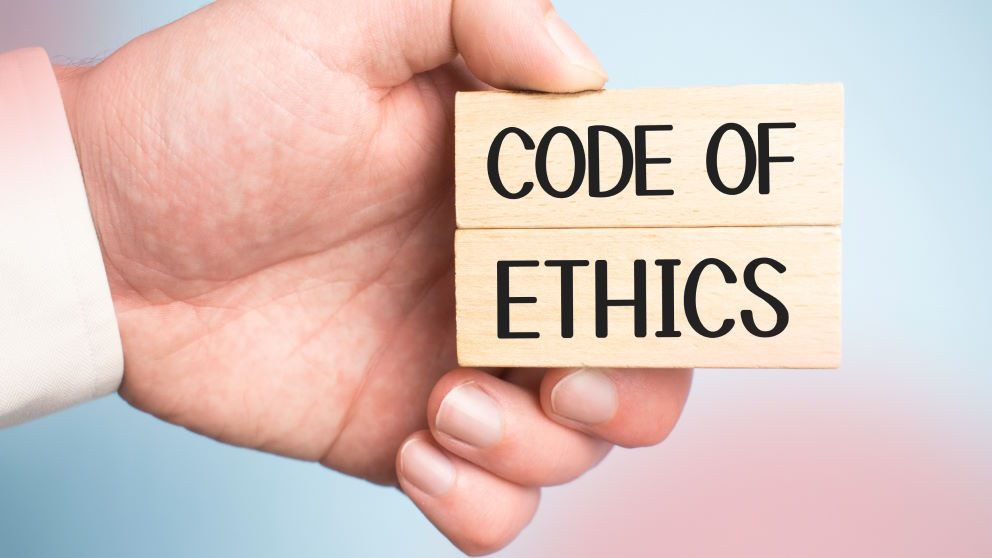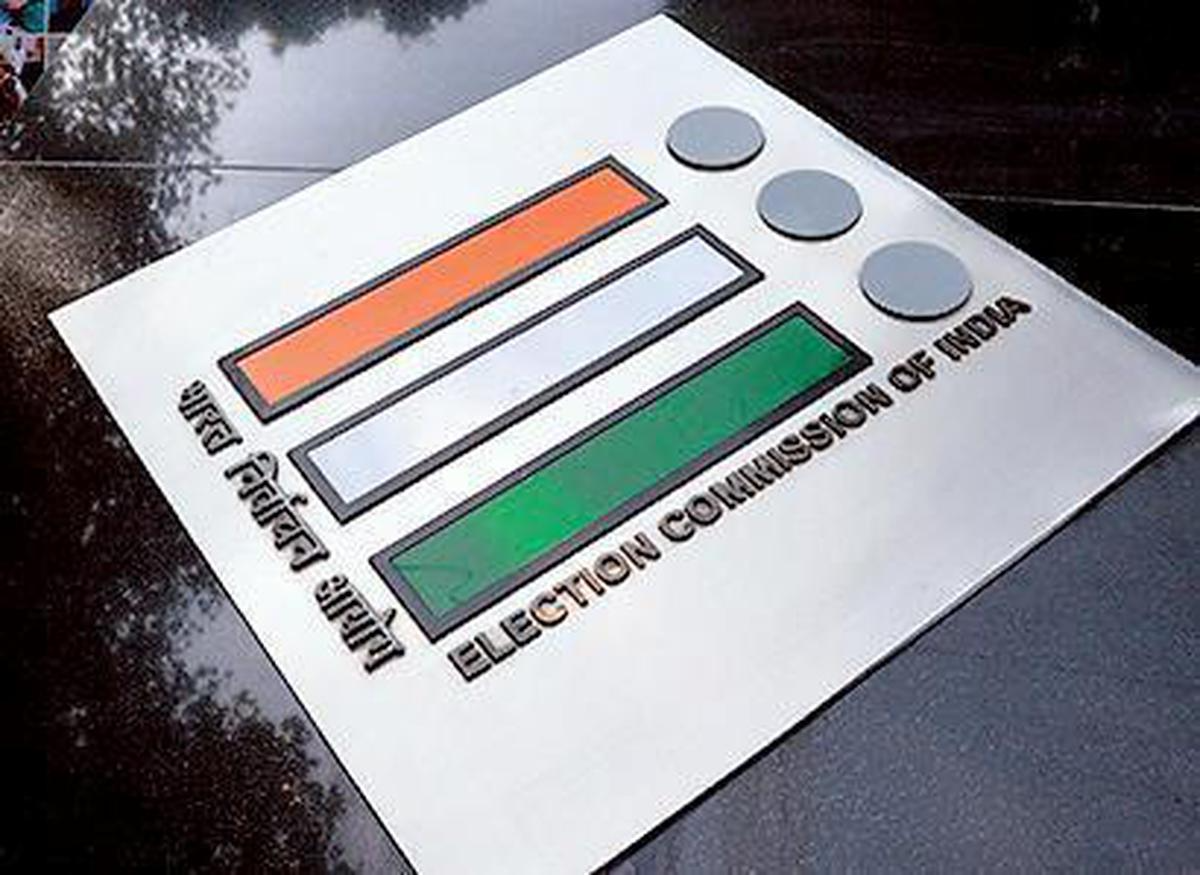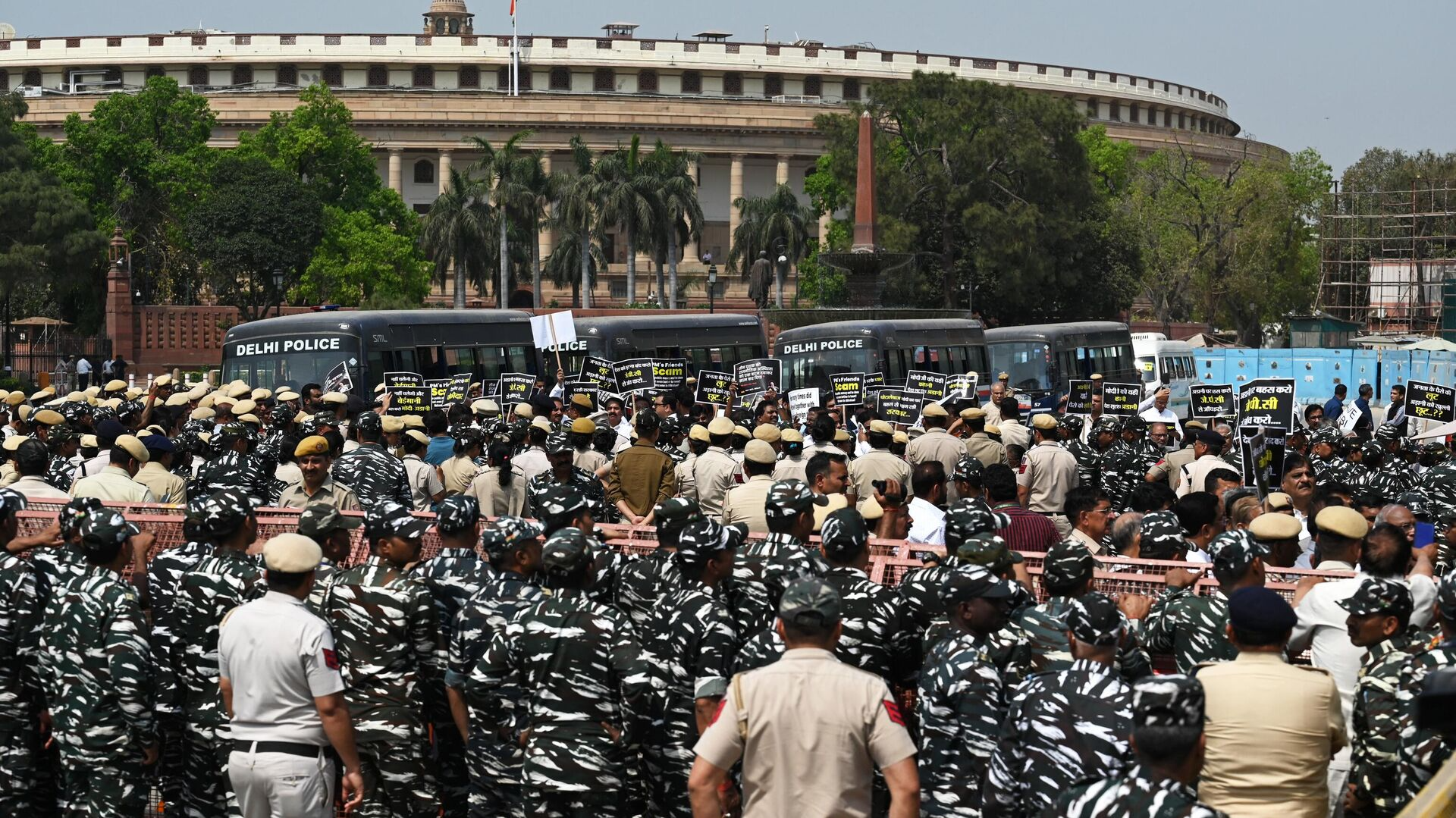New Ethics Code for Legislators Proposed
Posted On July 11, 2025

New Ethics Code for Legislators Proposed- Charting a Path Toward Transparency and Integrity in Public Office
In an effort to strengthen democratic governance and restore public trust, lawmakers across party lines have proposed a comprehensive new Ethics Code for legislators, aimed at establishing clear, enforceable standards of conduct in Parliament and state assemblies. The initiative, announced jointly by the Ethics and Accountability Committee, reflects growing concern over issues such as misuse of office, conflicts of interest, and opaque financial declarations. With a draft code now under consideration, the proposal marks a significant departure from informal norms and voluntary declarations toward a legally binding framework, one that could transform the political landscape by demanding higher transparency, stricter accountability, and clearer guidelines for legislative behavior.
The genesis of this proposal can be traced to mounting criticism of recent scandals involving misuse of constituency funds, discrepancies in asset declarations, and allegations of undue influence by corporate lobbyists. Citizens and civil society organizations have increasingly demanded stringent checks on legislators’ financial dealings and public actions. In response, a cross-party committee led by veteran parliamentarians held consultations with jurists, ethics scholars, non-governmental organizations, and international experts over several months. Drawing inspiration from legislative codes in countries like Canada, Australia, and the United Kingdom, the draft Ethics Code seeks to adapt best practices to India’s democratic context-balancing the need for robust oversight with respect for political autonomy.
The draft Ethics Code lays out six core principles that legislators must abide by throughout their tenure- integrity, impartiality, stewardship, accountability, collegiality, and respect for democratic institutions. Integrity requires that lawmakers act honestly, avoid deception, and maintain trust. Under impartiality, legislators must not allow personal interests to conflict with public duties. Stewardship encompasses responsible use of public resources, while accountability demands that elected representatives aNSEer for their actions and decisions. Collegiality emphasizes respectful relations among peers, and respect for democratic institutions obliges lawmakers to uphold constitutional norms. These principles form the backbone of the code and delineate both aspirational values and enforceable boundaries.
One of the most significant components of the proposal is a detailed conflict-of-interest clause. Legislators will soon be required to publicly declare all pecuniary and non-pecuniary interests-such as directorships, shareholdings, consultancy roles, and gifts-on an official registry maintained by the Ethics Committee. Should a proposed law or debate intersect with a legislator’s declared interests, that individual will be mandated to disclose the conflict publicly and recuse themselves from relevant proceedings or votes. Failure to comply could invite disciplinary measures ranging from formal reprimand to suspension or financial penalties. This provision is modeled after international best practices, promising greater transparency and mitigating undue influence in legislative processes.
Complementing conflict-of-interest provisions is a proposed system for gift and hospitality disclosure. Frequent scrutiny of foreign and domestic travel by parliamentarians, sponsored events, and corporate-funded hospitality has emphasized the need for uniform rules. Legislators will be required to record gifts, hospitality, or travel above a specified monetary threshold. All such entries will be open to public access alongside a justification for acceptance. The Ethics Committee will review these disclosures, ensuring that services offered by lobby groups or special interest entities cannot act as hidden incentives for legislative favor.
Another key aspect of the draft code pertains to use of public funds and office resources. The proposal outlines strict boundaries forbidding legislators from employing taxpayer-funded staff or infrastructure for personal or campaign purposes. It explicitly prohibits the use of official letterheads, vehicles, and staffers to benefit political campaigns or commercial interests. The code also requests annual audits of constituency fund utilization, with the results published on a unified portal. Misappropriation or diversion of funds-if for personal enrichment or election campaigning-would constitute a disciplinary violation, potentially triggering legal action or referral to ethics tribunals.
Oversight and enforcement sit at the heart of the proposed reforms. An Ethics Committee, with cross-party membership including two independent experts-such as legal academics or retired judges-will be empowered to investigate alleged violations. The committee may summon members, request documents, and hold hearings. Importantly, the process will ensure procedural fairness- accused legislators would be notified, be granted an opportunity to explain or defend their conduct, and, if found guilty, would face proportional sanctions ranging from censure to suspension. The committee’s ruling could also lead to referral to judicial or parliamentary bodies if criminal misconduct is determined, thereby closing loopholes in accountability.
In drafting this code, lawmakers proactively sought to balance enforceability with fairness. Recognizing that legislators must exercise independent judgment and complex discretion, the code includes provisions to protect “legislative speech,” ensuring that nothing restricts debate content or political advocacy unless it causes material breach of public confidence. It also recognizes unavoidable grey areas-such as participation in delegations or receipt of unsolicited gifts-establishing review protocols rather than outright bans. By carefully calibrating mandates, the code aims to avoid micromanagement while ensuring a robust ethical baseline for public office.
Public response to the initiative has been largely positive. Advocacy groups and think tanks have lauded the development as a long-overdue reform that can enhance democratic legitimacy. Media editorial boards have endorsed the need for transparency, noting that an enforceable ethics regime can deter misconduct more effectively than post-facto investigations. Legal experts, while broadly supportive, have also highlighted the importance of sufficient safeguards-such as appeal processes and protection against frivolous or politically motivated complaints. Across social media, citizens have expressed cautious optimism, hoping that the shift toward institutional integrity will improve the quality of governance and representation.
Yet, the proposal is not without critics or practical challenges. Some legislators have cautioned against overreach, warning that overly prescriptive rules could stifle parliamentary debate or invade privacy. Questions have been raised about the code’s legal enforceability, given constitutional immunity provisions for legislators and potential judicial scrutiny of internal parliamentary committees. Moreover, the effectiveness of the ethics regime hinges on the impartiality and credibility of the Ethics Committee-a point skeptically viewed by those concerned about political bias. Funding and capacity support for the committee, including trained investigators and dedicated staff, remain critical areas needing clarity.
The bill, currently under discussion in Parliament, is expected to undergo several rounds of debate and amendment. The Ethics Committee has invited feedback from stakeholders like political parties, NGOs, legal associations, and citizens before finalizing the draft. Amendments under consideration include tougher penalties for intentional nondisclosure, time-bound resolution goals for complaints, and expansion of jurisdiction to include state legislatures. A parallel effort is under way to mainstream ethics education for lawmakers and their staff, integrating modules on good governance and public stewardship into orientation programs for newly elected representatives.
In summary, the proposed Ethics Code for legislators represents a major step toward institutionalizing ethical standards in India’s democracy. By codifying conflict-of-interest rules, gift disclosures, fund usage norms, and independent oversight mechanisms, the initiative seeks to foster a culture of responsibility, transparency, and public service. While some hurdles remain in the form of constitutional constraints and operational details, the cross-party consensus on its necessity suggests deep political will. As the draft moves through legislative review, the next test will be if it can translate lofty principles into effective norms that reshape how parliamentary power is exercised-and trusted-by the nation’s citizens.
In an effort to strengthen democratic governance and restore public trust, lawmakers across party lines have proposed a comprehensive new Ethics Code for legislators, aimed at establishing clear, enforceable standards of conduct in Parliament and state assemblies. The initiative, announced jointly by the Ethics and Accountability Committee, reflects growing concern over issues such as misuse of office, conflicts of interest, and opaque financial declarations. With a draft code now under consideration, the proposal marks a significant departure from informal norms and voluntary declarations toward a legally binding framework, one that could transform the political landscape by demanding higher transparency, stricter accountability, and clearer guidelines for legislative behavior.
The genesis of this proposal can be traced to mounting criticism of recent scandals involving misuse of constituency funds, discrepancies in asset declarations, and allegations of undue influence by corporate lobbyists. Citizens and civil society organizations have increasingly demanded stringent checks on legislators’ financial dealings and public actions. In response, a cross-party committee led by veteran parliamentarians held consultations with jurists, ethics scholars, non-governmental organizations, and international experts over several months. Drawing inspiration from legislative codes in countries like Canada, Australia, and the United Kingdom, the draft Ethics Code seeks to adapt best practices to India’s democratic context-balancing the need for robust oversight with respect for political autonomy.
The draft Ethics Code lays out six core principles that legislators must abide by throughout their tenure- integrity, impartiality, stewardship, accountability, collegiality, and respect for democratic institutions. Integrity requires that lawmakers act honestly, avoid deception, and maintain trust. Under impartiality, legislators must not allow personal interests to conflict with public duties. Stewardship encompasses responsible use of public resources, while accountability demands that elected representatives aNSEer for their actions and decisions. Collegiality emphasizes respectful relations among peers, and respect for democratic institutions obliges lawmakers to uphold constitutional norms. These principles form the backbone of the code and delineate both aspirational values and enforceable boundaries.
One of the most significant components of the proposal is a detailed conflict-of-interest clause. Legislators will soon be required to publicly declare all pecuniary and non-pecuniary interests-such as directorships, shareholdings, consultancy roles, and gifts-on an official registry maintained by the Ethics Committee. Should a proposed law or debate intersect with a legislator’s declared interests, that individual will be mandated to disclose the conflict publicly and recuse themselves from relevant proceedings or votes. Failure to comply could invite disciplinary measures ranging from formal reprimand to suspension or financial penalties. This provision is modeled after international best practices, promising greater transparency and mitigating undue influence in legislative processes.
Complementing conflict-of-interest provisions is a proposed system for gift and hospitality disclosure. Frequent scrutiny of foreign and domestic travel by parliamentarians, sponsored events, and corporate-funded hospitality has emphasized the need for uniform rules. Legislators will be required to record gifts, hospitality, or travel above a specified monetary threshold. All such entries will be open to public access alongside a justification for acceptance. The Ethics Committee will review these disclosures, ensuring that services offered by lobby groups or special interest entities cannot act as hidden incentives for legislative favor.
Another key aspect of the draft code pertains to use of public funds and office resources. The proposal outlines strict boundaries forbidding legislators from employing taxpayer-funded staff or infrastructure for personal or campaign purposes. It explicitly prohibits the use of official letterheads, vehicles, and staffers to benefit political campaigns or commercial interests. The code also requests annual audits of constituency fund utilization, with the results published on a unified portal. Misappropriation or diversion of funds-if for personal enrichment or election campaigning-would constitute a disciplinary violation, potentially triggering legal action or referral to ethics tribunals.
Oversight and enforcement sit at the heart of the proposed reforms. An Ethics Committee, with cross-party membership including two independent experts-such as legal academics or retired judges-will be empowered to investigate alleged violations. The committee may summon members, request documents, and hold hearings. Importantly, the process will ensure procedural fairness- accused legislators would be notified, be granted an opportunity to explain or defend their conduct, and, if found guilty, would face proportional sanctions ranging from censure to suspension. The committee’s ruling could also lead to referral to judicial or parliamentary bodies if criminal misconduct is determined, thereby closing loopholes in accountability.
In drafting this code, lawmakers proactively sought to balance enforceability with fairness. Recognizing that legislators must exercise independent judgment and complex discretion, the code includes provisions to protect “legislative speech,” ensuring that nothing restricts debate content or political advocacy unless it causes material breach of public confidence. It also recognizes unavoidable grey areas-such as participation in delegations or receipt of unsolicited gifts-establishing review protocols rather than outright bans. By carefully calibrating mandates, the code aims to avoid micromanagement while ensuring a robust ethical baseline for public office.
Public response to the initiative has been largely positive. Advocacy groups and think tanks have lauded the development as a long-overdue reform that can enhance democratic legitimacy. Media editorial boards have endorsed the need for transparency, noting that an enforceable ethics regime can deter misconduct more effectively than post-facto investigations. Legal experts, while broadly supportive, have also highlighted the importance of sufficient safeguards-such as appeal processes and protection against frivolous or politically motivated complaints. Across social media, citizens have expressed cautious optimism, hoping that the shift toward institutional integrity will improve the quality of governance and representation.
Yet, the proposal is not without critics or practical challenges. Some legislators have cautioned against overreach, warning that overly prescriptive rules could stifle parliamentary debate or invade privacy. Questions have been raised about the code’s legal enforceability, given constitutional immunity provisions for legislators and potential judicial scrutiny of internal parliamentary committees. Moreover, the effectiveness of the ethics regime hinges on the impartiality and credibility of the Ethics Committee-a point skeptically viewed by those concerned about political bias. Funding and capacity support for the committee, including trained investigators and dedicated staff, remain critical areas needing clarity.
The bill, currently under discussion in Parliament, is expected to undergo several rounds of debate and amendment. The Ethics Committee has invited feedback from stakeholders like political parties, NGOs, legal associations, and citizens before finalizing the draft. Amendments under consideration include tougher penalties for intentional nondisclosure, time-bound resolution goals for complaints, and expansion of jurisdiction to include state legislatures. A parallel effort is under way to mainstream ethics education for lawmakers and their staff, integrating modules on good governance and public stewardship into orientation programs for newly elected representatives.
In summary, the proposed Ethics Code for legislators represents a major step toward institutionalizing ethical standards in India’s democracy. By codifying conflict-of-interest rules, gift disclosures, fund usage norms, and independent oversight mechanisms, the initiative seeks to foster a culture of responsibility, transparency, and public service. While some hurdles remain in the form of constitutional constraints and operational details, the cross-party consensus on its necessity suggests deep political will. As the draft moves through legislative review, the next test will be if it can translate lofty principles into effective norms that reshape how parliamentary power is exercised-and trusted-by the nation’s citizens.






